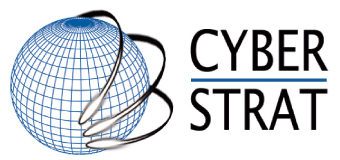Apprenez l’eTourisme avec un MOOC : Communication Perspectives

Ce cours étant en anglais, je publie donc cette annonce dans cette langue.
This Swiss-made MOOC takes you on a terrific journey into eTourism and online communication. You will feel the pulse of ICTs and enjoy the beauty of Switzerland as a globally renowned tourism destination. Time to travel. Join today.
Professors and authors: Prof. Lorenzo Cantoni, Dr. Nadzeya Kalbaska, Dr. Elena Marchiori, and Dr. Silvia Matilde De Ascaniis
This is an introductory course to a fascinating journey into the eTourism world, which crosses both space and time, and is always closely connected with communication. We are embarking to create a great study experience, which explores how Information and Communication Technologies shape tourism – both for our personal experience and for the tourism industry at large. In other words, we will together explore eTourism by using tools and models from the Communication Sciences.
Key concepts and theories covered include: Online Communication Model; Roman Jakobson’s Communication Model; Quality of online contents; User Generated Content; Web 2.0; Reputation in online Media; Intercultural Communication and Localisation; eLearning; Argumentation; World Heritage Sites.
WHO IS THIS COURSE FOR?
The following people to be attracted by the course in order to update their skills and knowledge on a very hot topic:
• Destination managers
• People active in the tourism industry
• Policy makers
• Students, in particular within tourism and hospitality
COURSE STRUCTURE
Chapter 1. Communication: an introduction to its nature and history (October 5-9, 2015)
Instructor: Prof. Lorenzo Cantoni
① Theoretical part:
The etymology of communication and its major components
② Case study:
UNESCO World Heritage Sites and eTourism
Chapter 2. The Online Communication Model (OCM) and the quality of online contents (October 12-16, 2015)
Instructor: Prof. Lorenzo Cantoni
① Theoretical part:
The Online Communication Model
② Case study:
Analysis of the content quality in online communication
Chapter 3. Usability analysis and web analytics (October 19-23, 2015)
Instructor: Prof. Lorenzo Cantoni
① Theoretical part:
Usability and usages analysis of tourism websites, mobile apps and other online communication tools
② Case study:
Strategies to assess usability
Chapter 4. Localisation of online content (October 26-30, 2015)
Instructor: Prof. Lorenzo Cantoni
Assistant: Emanuele Mele
① Theoretical part:
Cultural translation / localisation of messages for people with different cultural backgrounds and experiences
② Case study:
Localized website for domestic and international visitors. Case of Quito (Ecuador)
Chapter 5. B2B activities and eLearning: within the hospitality and tourism domain (November 2-6, 2015)
Instructor: Dr. Nadzeya Kalbaska
① Theoretical part:
The notion of eLearning and its use in the hospitality and tourism field
② Case study:
eLearning courses about Destination Management Organizations. Case of “Ticino Switzerland Travel Specialist” online course
Chapter 6. User Generated Contents (UGCs) & Web 2.0 (November 9-13, 2015)
Instructors: Dr. Silvia de Ascaniis; Dr. Elena Marchiori
① Theoretical part:
Communication opportunities given by UGCs and Web 2.0
② Case study:
Hotels’ communication strategies to respond to online reviews
Chapter 7. Reputation in online media (November 16-20, 2015)
Instructor: Dr. Elena Marchiori
① Theoretical part:
The definition of the reputation construct and its relevance in the online domain
② Case study:
How to analyze the online reputation of a tourist destination
Chapter 8. Argumentation in online travel reviews (November 23-27, 2015)
Instructor: Dr. Silvia de Ascaniis
Assistant: Jingjing Lin
① Theoretical part:
Definition of argumentation
② Case study:
Argumentative analysis of Online Travel Reviews of a Chinese National Park
Enroll yourself here

Laisser un commentaire
Participez-vous à la discussion?N'hésitez pas à contribuer!